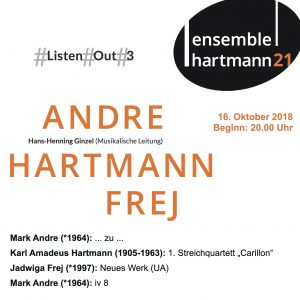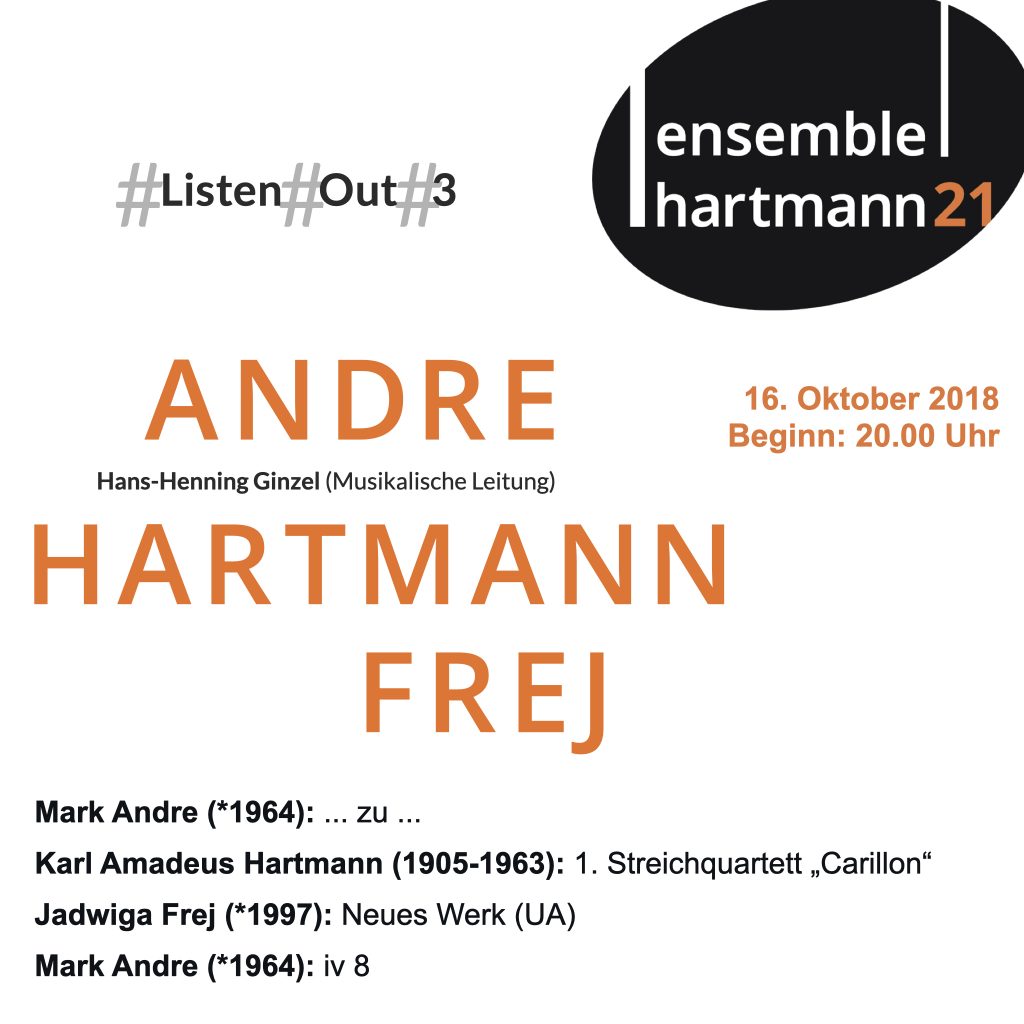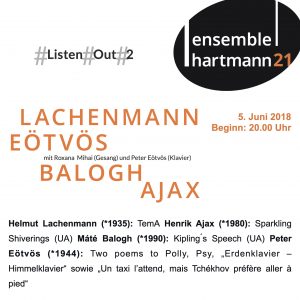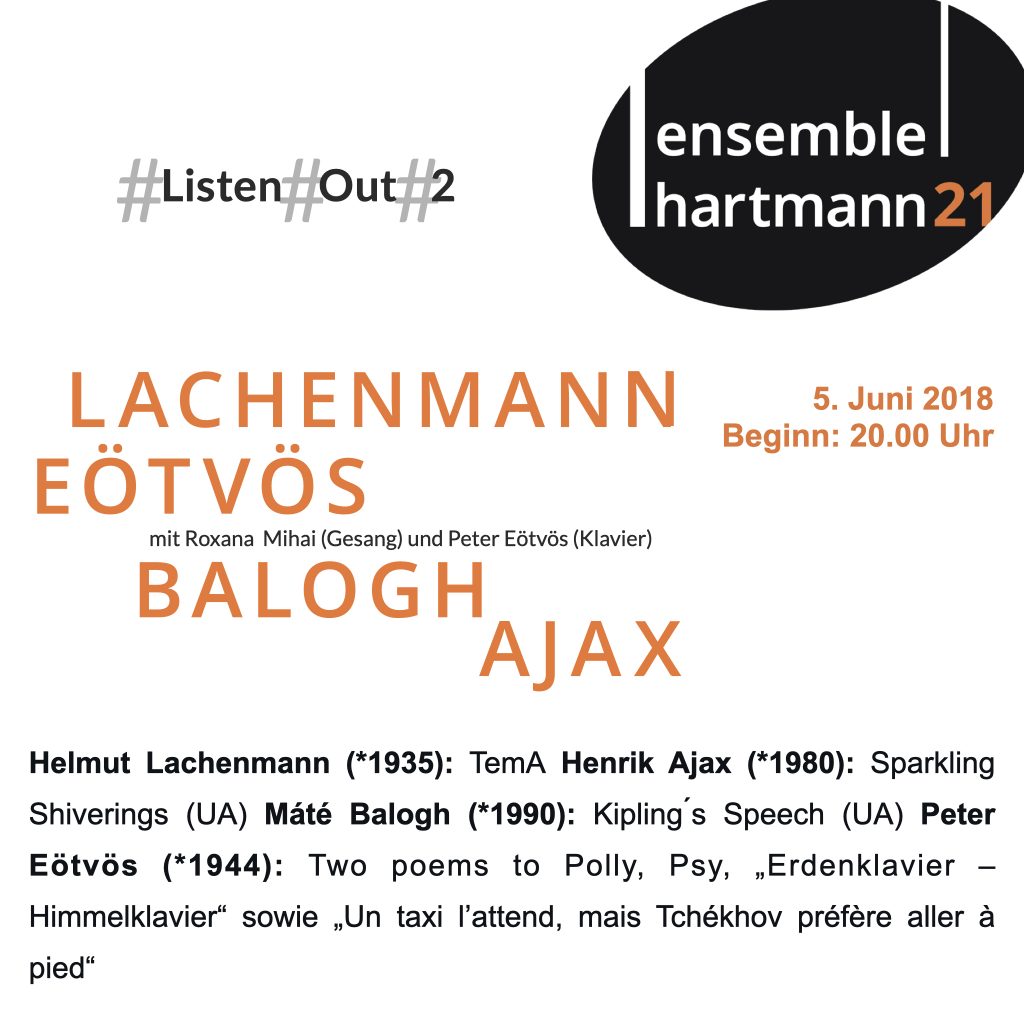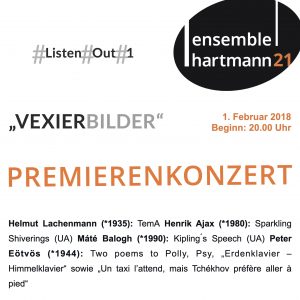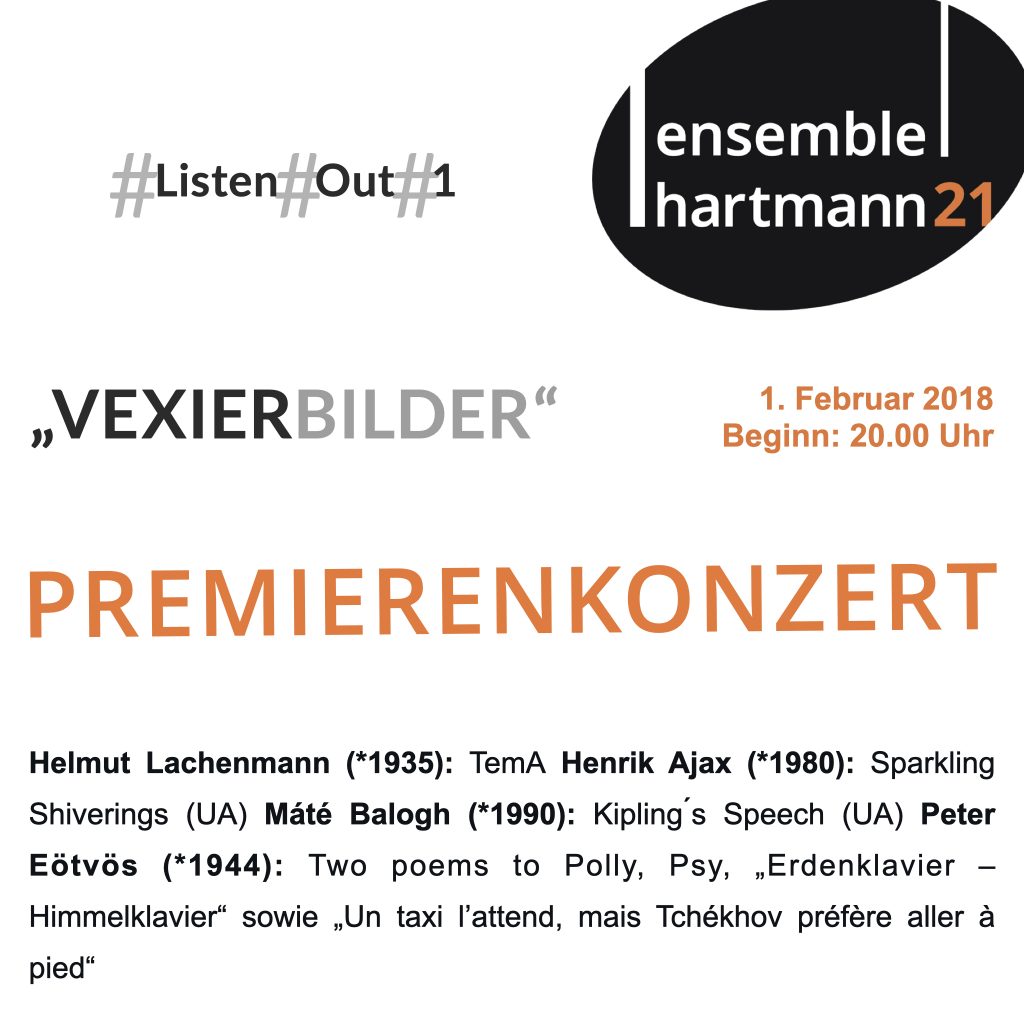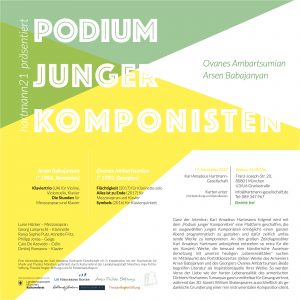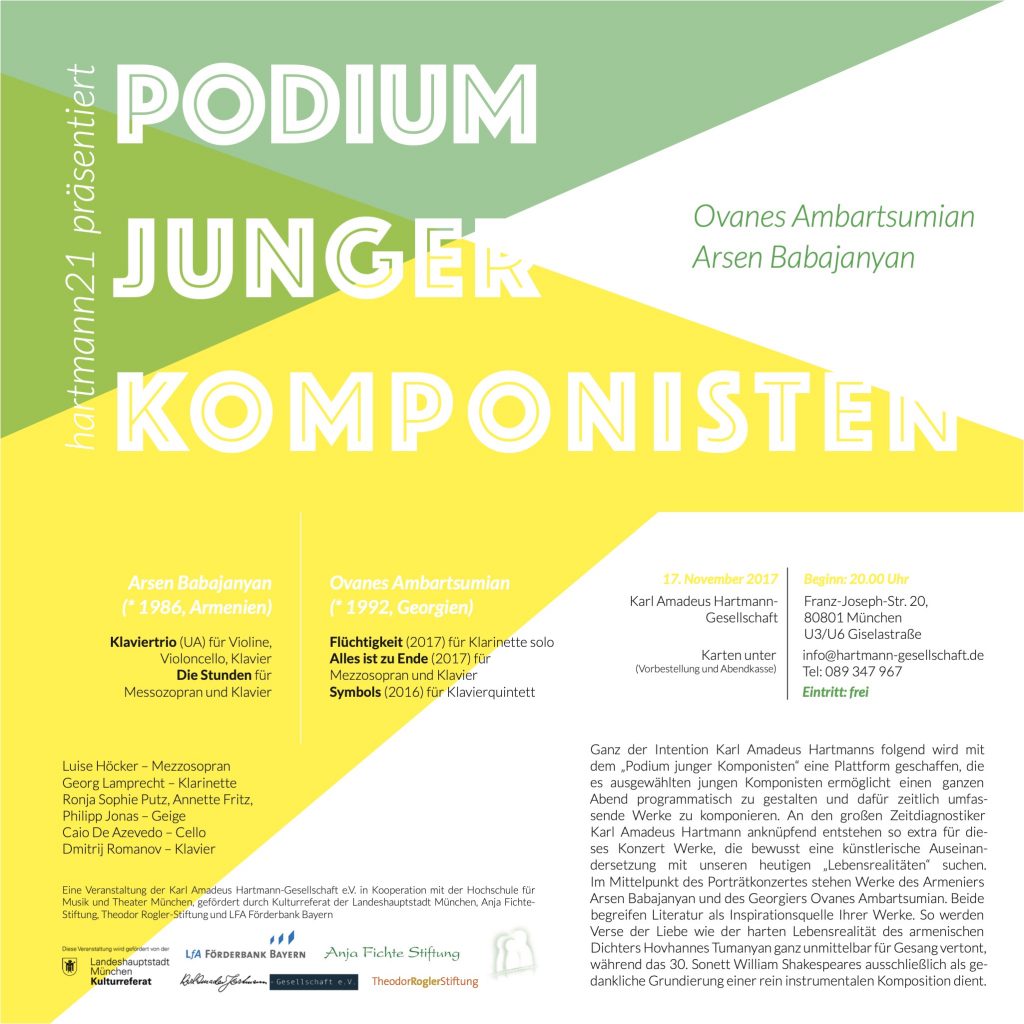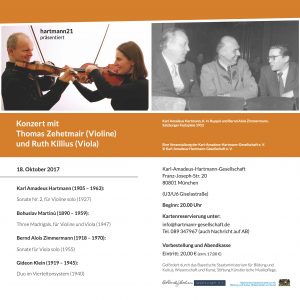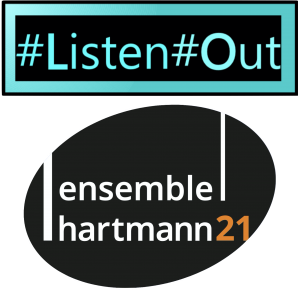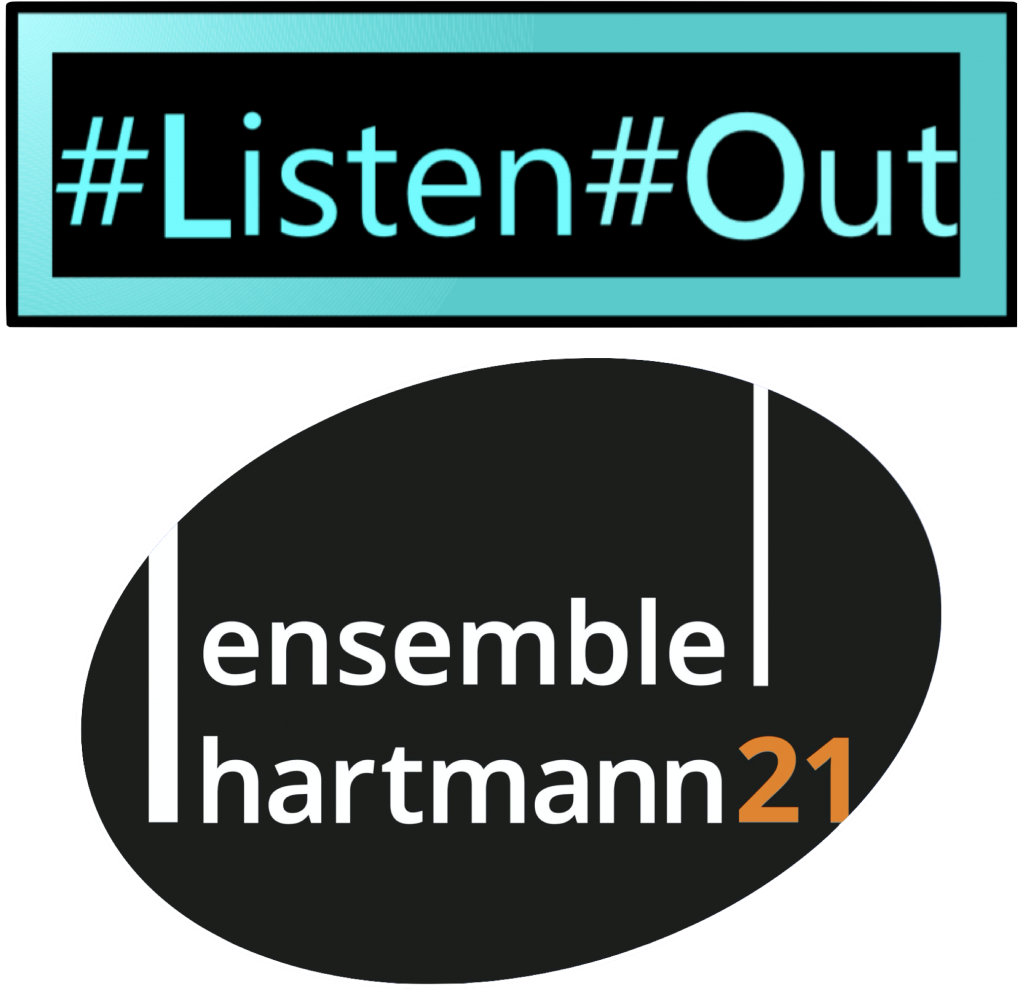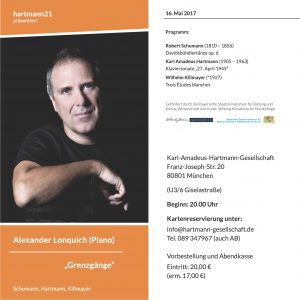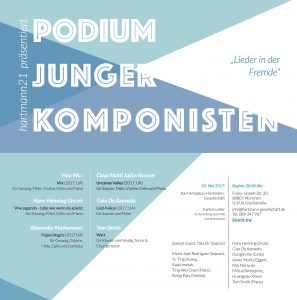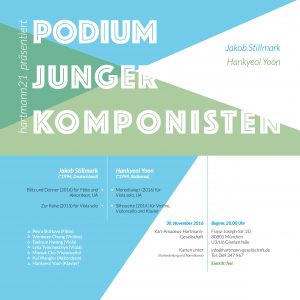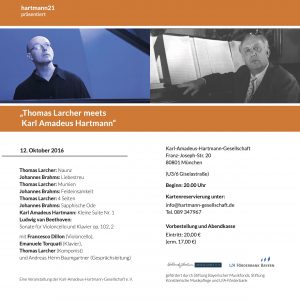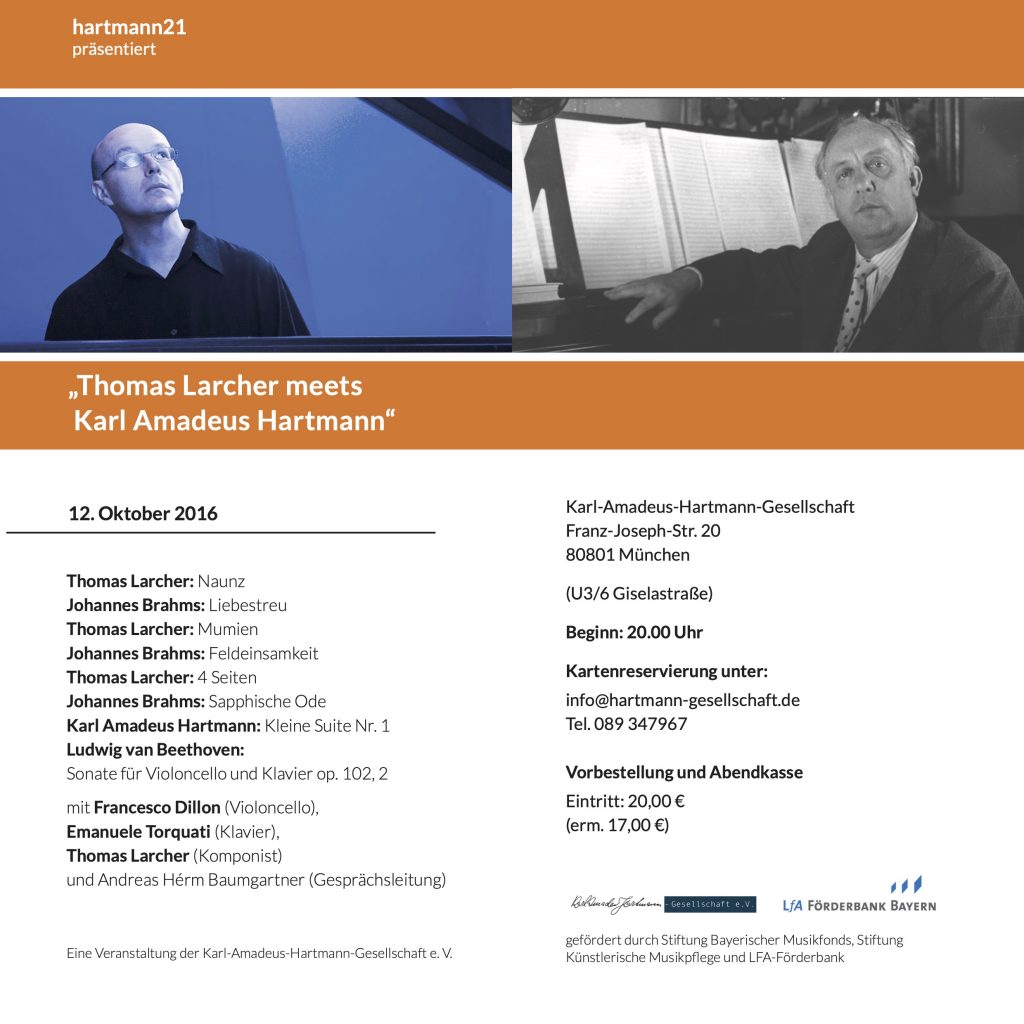Composed immediately after the National Socialists seized power in 1933, Karl Amadeus Hartmann’s first String quartet stands exemplarily for the canon of compositions with which he composed against National Socialism. At the age of 28, he rigorously refused any form of appropriation and went into internal emigration in Germany. He smuggled his works abroad, however, in order to speak there all the more eloquently. By constantly including Jewish melodies (especially the Passover song Eliyahu hanavi) as well as music and text quotations of ostracized and forbidden artists, Hartmann tried to convey his message of boundless humanity in all his compositions.
Furthermore, our ensemble hartmann21 is dedicated to compositions by the young Dresden composer Jadwiga Frej (UA) and the renowned composer Mark Andre. Twenty-one years old Jadwiga Frej, who was born in Poland and grew up and lives in Dresden, must already be counted among the most exciting voices of her generation. The composer Mark Andre, born in Paris in 1964, creates existential spaces of experience in his music, which are characterized by subtle processes of change. The Hamburger Abendblatt called his chamber music, which is as fine as it is concentrated, „Kartenhäuser des Klangs, die kein Wind umzublasen vermag“ [“houses of cards of sound that no wind can blow around”]. …zu…, whose title refers to the Revelation of John from Patmos (22,5), ist joined by Andre’s iv8. “iv” is the abbreviation for i(ntro)v(ertiertheit). It is about inner compositional spaces that are developed by focusing on fluctuating and fragile sound form.
Where are the limits of perception, of notation, of sound experience? We would like to explore these questions together with the composers Jadwiga Frej and Mark Andre.
An event of the © Karl Amadeus Hartmann-Gesellschaft e. V., sponsored by Bayerische Staatsministerium für Wissenschaft und Kunst, Kulturreferat der Landeshauptstadt München, LfA Förderbank Bayern and Bezirk Oberbayern.
